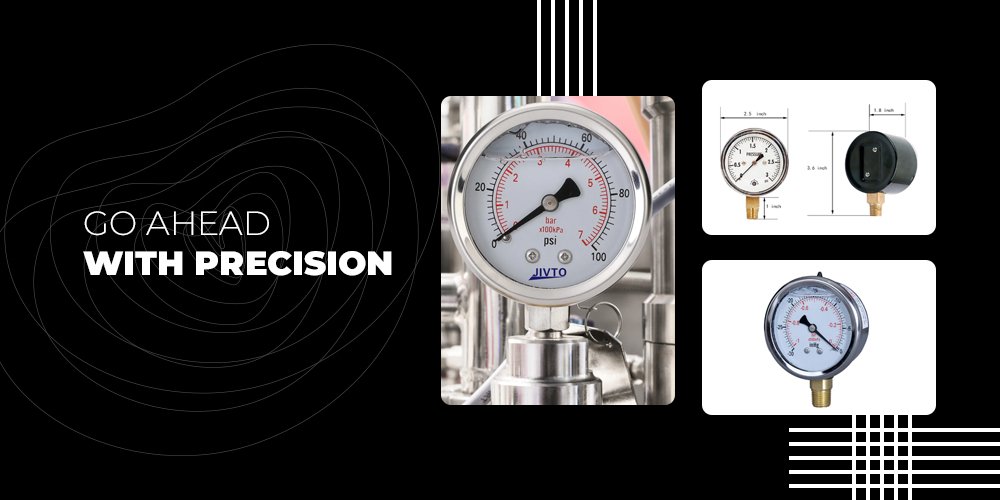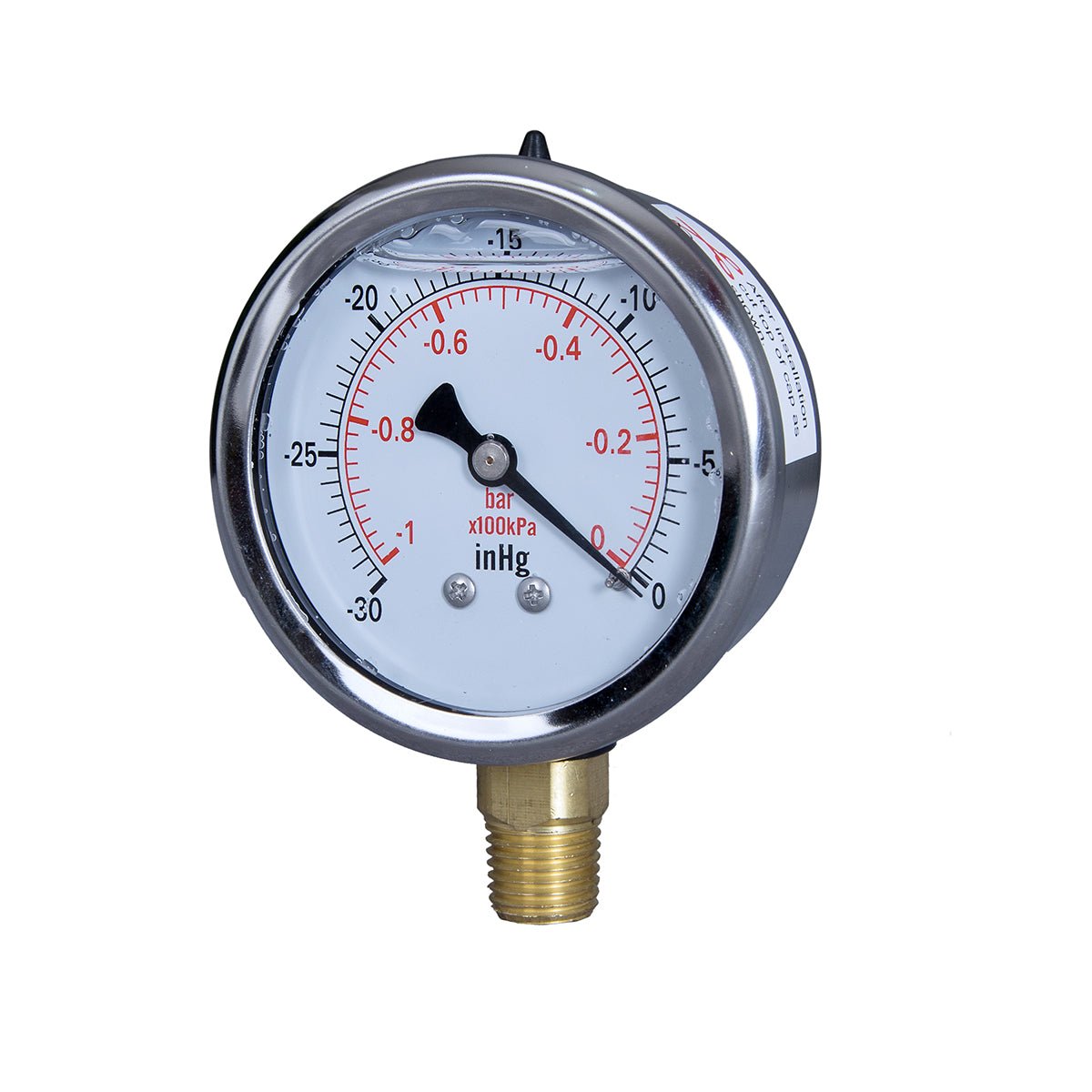
How to Select a Pressure Gauge?
Pressure gauge, termed as an instrument used for measuring the condition of the fluid (liquid or gas) specified by the force the fluid would exert per unit area. Every pressure gauge has a pre-defined limit to measure a pressure higher than the maximum of the range; it therefore becomes necessary to know and understand the kind of pressure gauge brought into application before actually taking readings through it!
Factors responsible for selecting the right pressure gauge

What is the application? How much pressure is involved? What is the specification of the dial selected? How much would the gauge accuracy be? To what extent will the overpressure in the circuit be handled? Pertinent questions that help you find a proper range for your pressure gauge arise almost instantaneously! .

Moreover, it is often too overwhelming for you to get confused amidst a plethora of pressure gauge choices brimming in the market. The factors unfurled in the article will let you streamline your objectives behind selecting the right pressure gauge for your pressure monitoring requirements!
1) Dial sizes and other specifications
A needle that calibrates and responds to any fluctuation in pressure levels occurring within a specified parameter, dial, becomes of the utmost importance for measuring minute lengths and displacements. A dial gauge comprises a scale including numerals, minor and major graduations. Those minor graduations can be difficult to read if they’re too close together, so consider readability when selecting a dial size. Also, the width of the pointer cannot be greater than that of the dial graduations. The dial size needs to be selected with a space restriction where the gauge can be installed. Common dial sizes include 2.5-inch pressure gauges, 2-inch pressure gauges
2) The scale options
Different scale options are available for many single and dual-scale ranges. Additionally, there are a range of options to consider when selecting a gauge range. From triple to quadruple, your gauge can measure different scales depending on your measurement requirements. Also available are scales that measure pressures and corresponding temperatures. Moreover, there are gauges that measure vacuum. Remember, when there is a need to measure both pressure and vacuum, a compound scale is available.
3) Accuracy matters
The specifications of the gauge should match the intended application! It is important not to install a pressure gauge that would give flawed measurement data. Even though the fact that the cost of purchase, maintenance, and calibration might be higher, but gets you flawless monitoring and measurement. In situations where you require a gauge with better accuracy, this usually means more graduations on your dial. A larger dial is preferred in case there has to be accommodation of the required measurement increments.
4) The design pressure
Design pressure implies the maximum pressure the gauge will experience during application. There can be a potential pressure spike, a surge, or a greater pressure experienced when at the start and during the application. Design pressure becomes a prominent factor to look for, while understanding the pressure gauge failure or inaccuracy in measurements due to overpressure. Pressure gauges have a limited resistance to overpressure (pressure higher than the maximum of the range), so it is necessary to be sure that the pressure gauge will be able to withstand any overpressure that may occur in the circuit.

Go for choices that suit your pressure measurement needs
Getting your pressure measurement done with greater accuracy, precision, efficiency, and safety becomes a key to critical success whenever and wherever applied. Input, Output, Stability, Operation, Reliability, and Sensitivity, a pressure gauge needs to be on-point, accurate, and easy to read to help prevent failure in everyday operations. However, what it needs to prevent failures in measurements is a careful picking of your pressure gauges! Remember, a wise selection of pressure gauges won’t be a problem anymore with JIVTO coming to the rescue!
When selecting the right pressure gauge, you need to consider the range, accuracy class, and environmental conditions (refer to the WIKA Official Guide).
If you want to learn about common pressure gauge failures and how to avoid them, check our article: Common Pressure Gauge Failures and Selection Tips.
During the selection process, you should also pay attention to the installation location, media type, and operating environment to ensure long-term reliability and safety.
JIVTO is here to help!
JIVTO has specialized in the area of pressure gauges, ball valves for more than 15 years. The pressure gauges are widely used for measuring gas pressure, water pressure, liquid pressure, hydraulic pressure, etc. We offer high-quality pressure gauges professionally.
Related Articles:
What is a pressure gauge? And how does it work?
Types of errors in pressure gauges.
The many types of pressure gauges in the measurement industry.
